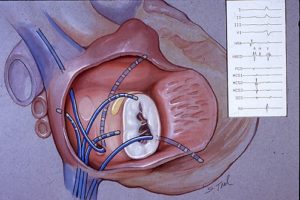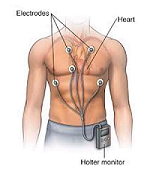Role of Electrophysiologic Study (EPS)

What is an electrophysiologic study (EPS)? An electrophysiologic study (EPS) is used to find the source of abnormal heart rhythms. Some of these rhythms are caused by abnormalities in the heart’s conduction system. The conduction system is made up of special cells linked together in pathways to carry the electrical impulse that causes the heart to beat and pump. EPS […]
» Read more


